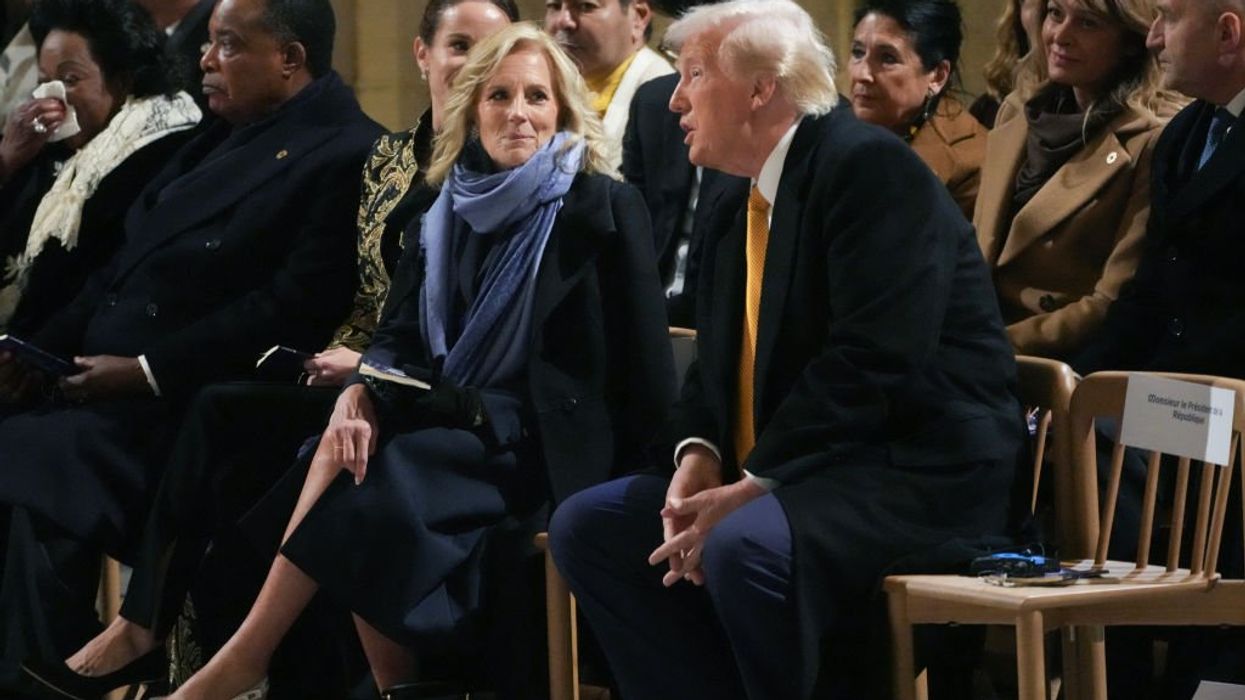
© 2024 Blaze Media LLC. All rights reserved.
Stephen Yates Joins 'Real News' to Discuss China and U.S. Policy in the Western Pacific
September 07, 2012
As the dust will now settle from the national party conventions over the last two weeks in Tampa and Charlotte, attention turns to Secretary of State Hillary Clinton's trip to China-- possibly her last as head of the State Department.
Many have predicted that the situation in Syria will be of major discussion during the visit, as China along with Russia have blocked calls on the U.N. Security Council for stronger international intervention in the 19-month nearly conflict in Syria. Possible human rights and religious freedom issues are of frequent concern to the U.S. in regards to China, and recent squabble's between U.S. allies in the region could also be addressed during the trip.
Subtle tensions have increased with China over the last few days, as Clinton's meeting with Xi Jinping; the likely sucessor to Chinese President Hu Jintao, was abruptly canceled, and personal attacks against the Secretary of State have reportedly streamed through government-run media. The Washington Post writes that aside from policy differences, elections and leadership transitions in both China and the United States could explain the lukewarm start to the meeting between representatives of the world's two largest economies.
In all, Clinton’s trip exposed real differences, frustrating difficulties and aspects of the U.S.-China relationship that remain outright puzzling after four years of engagement, strategic castigating and a search for balance between the two.[...]
One explanation for the tensions on both sides is the simultaneous leadership transition underway — with a presidential election in the United States and a similarly brutal competition for the handful of seats on China’s ruling council that has been cloaked in secrecy. One of the only signs of the titanic struggle rumored to be going on between factions of the Communist Party here is the recent string of scandals that some contenders have used to edge out rivals for the top seats and strengthen their own position.
In addition to relations exclusively with China, the United States has been walking a fine line with its allies in the Western Pacific, as disputes have arisen regarding largely uninhabited islands in the Sea of Japan, the East China Sea and the South China Sea. In an Op-Ed in the Los Angeles Times, John R. Deni writes that Washington has had trouble trying to"multilateralize" its approach on security issues with key allies in the Asia-Pacific region, who appear to have little interest in cooperating with one-another.
Whether it's Taiwan versus the Philippines (and China, Vietnam, Malaysia and Brunei) in the South China Sea, Japan versus Taiwan (and China) in the East China Sea or South Korea versus Japan in the Sea of Japan, many of Washington's key allies here have little interest in cooperating more closely on security issues.If there is one thing America's Pacific allies do share, though, it's a collective anxiety over China's rise, and specifically over Beijing's increasingly overt ability and willingness to translate its economic power into political muscle.
[...]
The prospect of key Pacific allies quarreling among themselves instead of collectively focusing on their common security challenges places the United States in a no-win situation.
On "Real News From The Blaze" Friday, the panel discussed what should be the United States's national security goals in the region, specific policy with China, and where these tasks rank in the country's overall foreign policy and national security interests. Does China’s behavior toward Secretary Clinton suggest we need a different approach?
Former China specialist in the office of Vice President Dick Cheney and current president of D.C. International Advisory, Stephen Yates, joined the show. Watch a clip from the segment below:
Want to leave a tip?
We answer to you. Help keep our content free of advertisers and big tech censorship by leaving a tip today.
Want to join the conversation?
Already a subscriber?
more stories
Sign up for the Blaze newsletter
By signing up, you agree to our Privacy Policy and Terms of Use, and agree to receive content that may sometimes include advertisements. You may opt out at any time.
© 2024 Blaze Media LLC. All rights reserved.
Get the stories that matter most delivered directly to your inbox.
By signing up, you agree to our Privacy Policy and Terms of Use, and agree to receive content that may sometimes include advertisements. You may opt out at any time.


